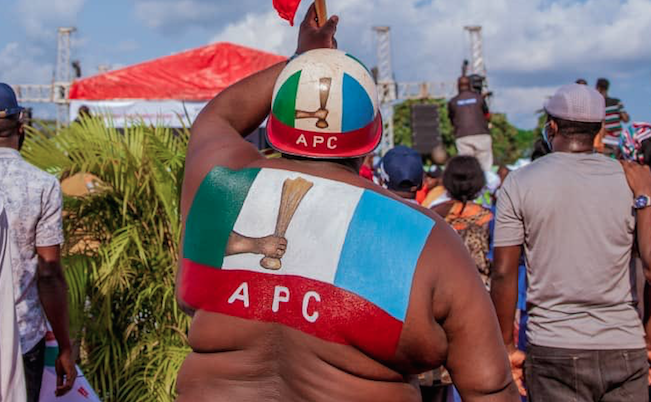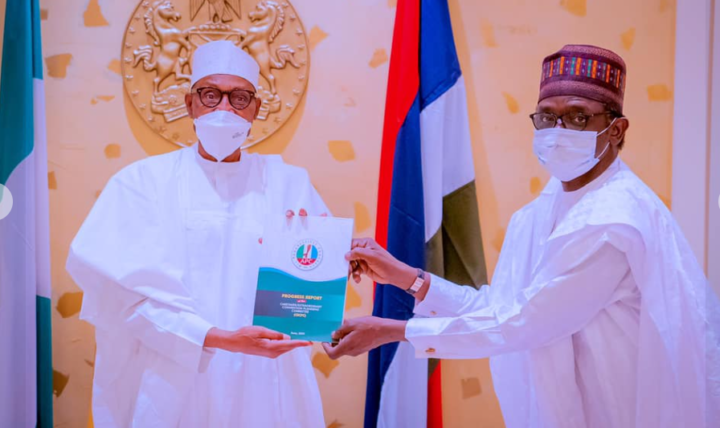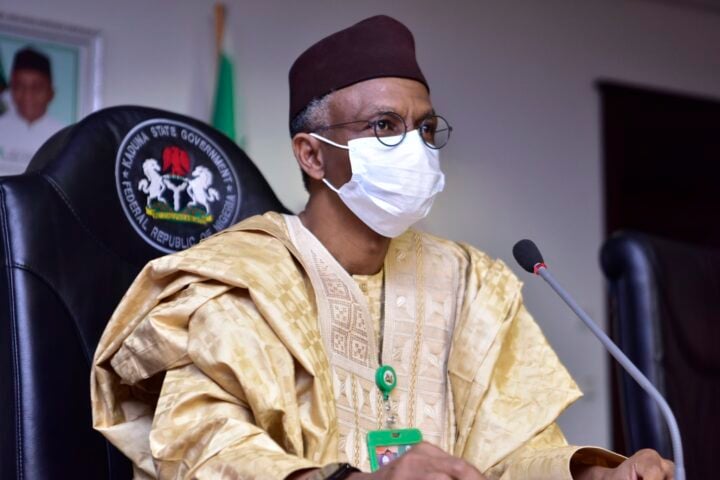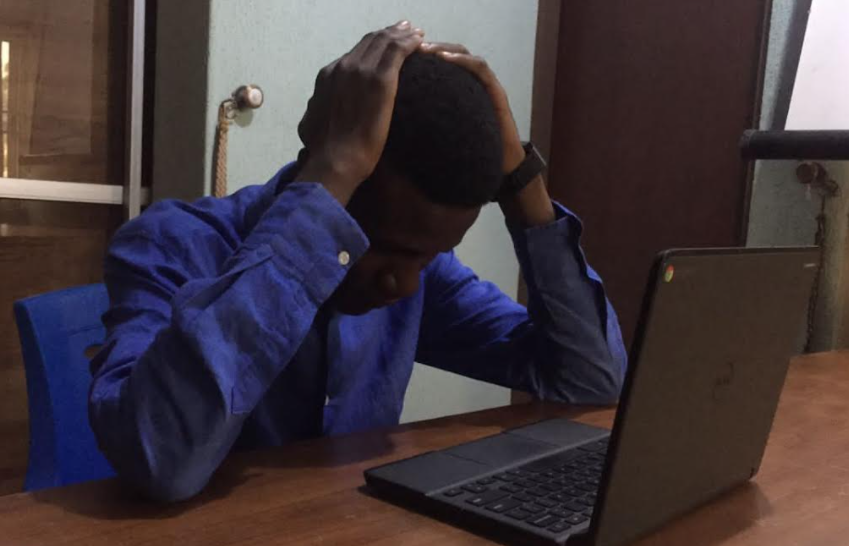BY OLALEKAN ADIGUN
Whatever does not kill, as they say, makes one stronger. So, when circumstances happen to us mortals, most of the time, it is how we react or respond to them that matters. This seems to be the situation with Nigeria’s ruling party, the All Progressives Congress (APC), today.
Since its historic victory in the 2015 presidential election, the APC does not seem to have mastered the art of managing victories. For the most part, it still looks like or behaves like an opposition party. I’ve never seen a ruling party in Africa more bullied than the APC. In some cases, APC members are made to feel helpless, hapless, and abandoned.
Apart from basking in the glory of being in power, APC members don’t really feel so. In June 2020, at a meeting presided over by President Muhammadu Buhari, the party’s national executive council (NEC) dissolved its national working committee (NWC). One would have expected this should have been a once-and-for-all solution to the lingering litigation and numerous crises facing the party. This was not to be. Even though NEC set up caretaker and extraordinary convention planning committee (CECPC) with just one job – to usher in newly elected party leaders, the Mai Mala Buni-led team is yet to deliver two years later. One then wonders why. Is the APC under some sort of spiritual spell? Are they on a deliberate journey to implosion?
Advertisement
Noticing some dangerous political games by some CECPC members, governors elected on the party’s platform quickly gave the president and overall leader the heads up. The Buni-led team seems compromised. The constant attempts to prevent the convention from taking place became suspicious – and for good reasons. Weren’t they just going to conduct the convention by December 2020? How many more months will they need if six months isn’t enough time to hold a convention? The Buni-led team started importing ultra-progressive elements, including the irascible Femi Fani-Kayode. A committee that had just one job description – to usher in a new set of party executives – soon started finding new jobs for itself to elongate their stay in the office. They started conducting new membership registration: a waste of time and resources if you ask me. They did anything and everything to buy time.
Even though it was clear that the CECPC’s continuous stay at the Muhammadu Buhari House portends further danger, APC members pretend that all is well with the party. While some APC members may pretend, others still live with the horror of Zamfara and Rivers happening all over again. If such happened again, it would be the opposition’s biggest gain. These fears are founded because the alarm, this time, came earlier. The first time could be taken as stupidity, but the second time will be a disaster!
The opposition, the People’s Democratic Party (PDP), gave a timely warning recently when its spokesperson, Debo Ologunagba, told us that the APC is “not a political party under our laws but a special purpose vehicle (SPV) which became legally nonoperational when, on December 8, 2020, it dissolved its national, state as well as local government structures and handed its affairs over to a team of ‘political undertakers’ known as the CECPC.” The PDP’s statement went further to state that APC is operating without an NWC, NEC, or a board of trustees (BoT) which means the party is “plagued by confusion and fierce infighting by its various warlords with two national chairmen, multiple factions in the states, and a national secretariat now taken over by security agencies”.
Advertisement
While one may easily dismiss the PDP’s statement as alarmist, the APC has so much to worry about, and for good reasons. The PDP has, technically, not lost power or its old tricks. Old habits die hard. We saw this in full display in Rivers, Zamfara, and Bayelsa states during the 2019 elections. The PDP is not ready to campaign for or win people’s votes in 2023. This is me being brutally honest. It is only banking on APC’s mistakes, misjudgments, or some legal “technicalities.” The party is also expecting the APC to implode. Most of (if not all) those “imported” into the party from the PDP are cancerous cells with sinister intentions to destroy or weaken the party from within. Like the hyena, the PDP is only ready to be a scavenger instead of a hunter. While nothing is really wrong with scavenging, feeding off of other people’s hard work poses a huge problem. The APC would be soundly deluded to think the PDP is interested in winning the 2023 elections by votes. The PDP fully expects Rivers, Zamfara, and Bayelsa will all repeat themselves at all levels in 2023, leaving APC to wailing!
Even though a party with 23 state governors may come across as one that is too big to fall, the PDP does not appear to be leaving any stone unturned in its ambition to “take over” in 2023. Having lost two consecutive elections, the PDP has realized that taking a “great fall” from power is always easier than getting back to the top. The example of Mexican Partido Revolucionario Institucional (PRI), which held on to power for an uninterrupted 71 years from 1929 to 2000, winning every presidential election, suffices here. Though it lost power peacefully in 2000, it had to wait another twelve years to return to power at the national level in 2012. So, the thinking that APC may be too big to make such a great fall may have been misplaced.
The recent developments within the party and the behaviour of some APC leaders should be a cause for concern. The frequent postponement of the extraordinary convention shows that something is not right. At this point, the party must take some decisive actions against people who attempt to sacrifice the party for their immediate political ambitions. Things like that should never be tolerated. I support all actions taken in the past few days to weed out subversive elements from the party. Since the party was formed about eight years ago, it has not undergone any major purges. The APC is now at the moment of truth. Most (if not all) ruling parties face the challenge of managing internal conflicting interests. But, what usually happens is that they either come out stronger or they implode altogether. The APC will need to take this firm decision on or before March 26, 2022!
Olalekan Adigun, an accidental writer, sent this piece from Lagos. He can be reached via Twitter @MrLekanAdigun and [email protected]
Advertisement
Views expressed by contributors are strictly personal and not of TheCable.
Add a comment






